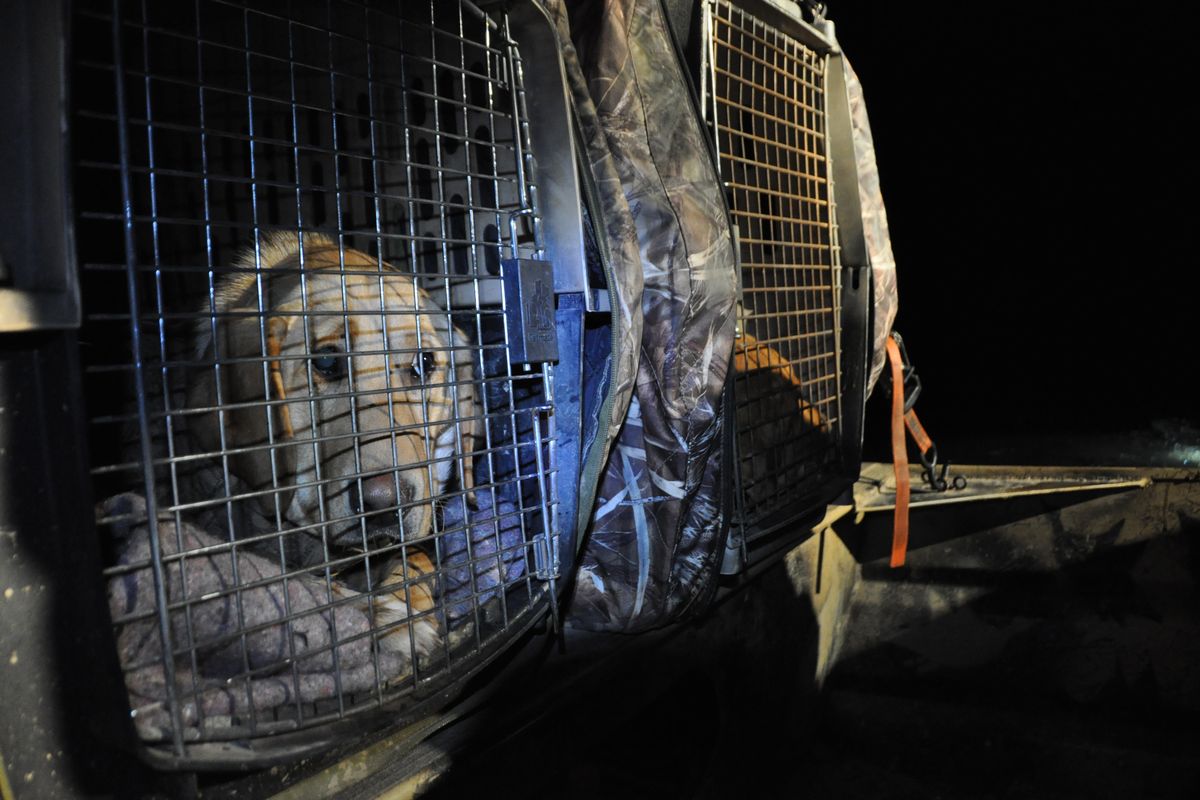Hunting dog trainer shares tips

Dan Hosford (pictured), a professional hunting-dog trainer for 40 years, shared the following tips and philosophies with Outdoors editor Rich Landers during a waterfowl hunt in North Idaho.
• Think of dog training as teaching rather than correcting.
• Be fair. “If the dog is giving effort, reward the dog. Know difference between effort and defiance.”
• “Dog training is a reaction process, not a thought process. If you have to think about what to do when a dog makes a mistake, it’s probably too late.”
• The first goal with puppies is to make them eager and enthusiastic. “It’s a lot easier to tone a dog down than to instill eagerness.”
• Praise and reward are vital in dog training to set the drive.
• Carefully control initial hunting outings with a pup. A waterfowling pup can be set up for failure by unleashing it onto breakable ice, dangerously swift current or other anxiety- producing experiences.
“The first time you send a young dog to retrieve a goose, make sure the goose is stone dead because if it gets nipped or beat up, you’ve got a heck of a problem to undo.”
• Biggest obstacle to developing a finished dog: “The owner.”
“I can easily teach a dog what to do. The problem is teaching the handler.”
• No. 1 issue clients have: Dog won’t always come when called.
Solution: Go back to the beginning and gradually work on the command in controlled situations where defiance can be immediately corrected.
• No. 2 issue hunters have: Dog won’t pick up birds and retrieve them all the way back to handler.
Solution: Develop a conditioned retrieve. In other words, force-break the dog to retrieve.
Some people oppose force-breaking, which initially involves inflicting pain, such as an ear pinch, to force a dog to open its mouth on command and hold a dummy.
“Lots of dogs will naturally retrieve without force breaking,” Hosford explains. “But the conditioned retrieve is the cornerstone of everything the dog will be in the toughest conditions.
”It adds authority to your command. It gives you control.
“A hunting dog must respect you in all the situations a hunt might deliver, not just when the dog is by your side in blind, but also when it’s out there 200 yards with all sorts of obstacles and distractions.
“The English try to never force-break dogs. They try to get natural retrievers through genetics. It works sometimes, but not always. And what do you do with the dogs that don’t do it naturally?
“No doubt genetics helps retrievers, but force-breaking works. And it doesn’t have to be the level of negativity some people think.”